You are reading the older HTML site
Positive Feedback ISSUE
41january/february 2009
Do You Believe In Ghosts?
Recollections of My Friend, John Potis
by Chip Stern
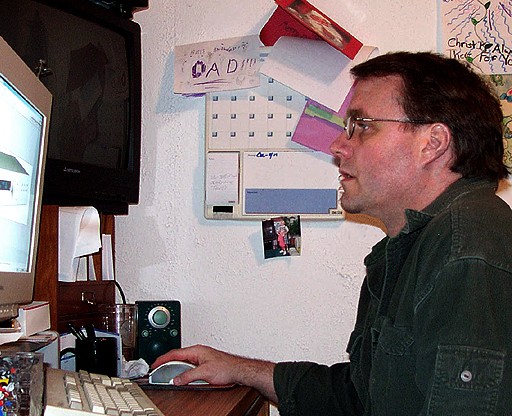
Iron Chef
PhotoShop
John Potis in His Digital Domain
Accept something that you cannot change, and you will feel better.
Chinese Fortune Cookie
Into every reign, a little life must fall
Papa Jo Jones

JOHN POTIS' SYSTEM
LOUDSPEAKERS
Tidal Audio Pianos, Thiel CS 2.4s, Ohm Acoustics Walsh 4.5 mk.2s,
Hørning Perikles Ultimates, Genesis Advanced Technologies G-928
subwoofers (2), Bryston 10B-Sub Active Electronic crossover.
ELECTRONICS
Bel Canto Pre2P preamplifier. Art Audio Carissa amplifier, Bel Canto
e.One REF1000 amplifiers, Canary CA 330 amplifiers, Opera Audio Cyber
211 amplifiers, and a Musical Fidelity A5 integrated.
SOURCE
Merrill-Scillia Research MS2 table, Hadcock GH Export arm, Ortofon
Kontrapunkt H cartridge; Acoustic Arts Drive 1/Audio Aero Prima SE DAC.
CABLES
JPS Labs Superconductor 3 speaker cables and analog and digital
interconnects, JPS Power AC, Analog AC, Digital AC, Aluminata and
Kaptovator power cords.
ACCESSORIES
GEM Dandy Hydraulic LP Cleaner, Sound Mechanics Performance Platform,
Gingko Audio Mini-Clouds, 2-inch Butcher Block platforms with Quest for
Sound Isol-pads, Vibrapod Isolators and Cones, Ultra & Heavy Z-sleeves,
Viablue QTC spikes, Auric Illuminator. Balanced Power Technology 3.5
Signature Plus with JPS Aluminata Power Cord.

What
Else Matters?
The Potis Family [l-r]: Gracie, John, Rebecca, Daniele
How am I going
to play anything new for you when I've been dead for twenty years?
Do you believe in ghosts?
Papa Jo Jones
A bird does not sing because it has an answer. It sings because it has a song.
Chinese Proverb
People do not die for us immediately, but remain bathed in a sort of
aura of life
which bears no relation to true immortality but through which they
continue to occupy our thoughts in the same way as when they were alive.
It is as though they were traveling abroad.
Marcel Proust
I've been trying to stop talking to John Potis all this past week, but try as I might, I'm afraid it ain't taking. John Potis is all mixed up in my recombinant DNA—the other side of my heartbeat. John was more than a colleague, he was my buddy, and we would fuss and fight, but none of it mattered. No, none of it mattered. And a song is not enough.
"Mrs. Potis? Can John come out to play?"
Friendship isn't
a big thing,
It's a million
little things.
Unknown Author
Wish I knew who said that. I've been coming to appreciate that anew these past two weeks.
I just spent much of this past Xmas day concocting a CD compilation (dubbed A Song Is Not Enough) and conversing at length with my man Otis through the medium of accumulated emails, stretching back to 2005 and beyond: by listening to music, some of which we'd shared; by reveling in a superb audio system; by delving deeper and deeper into the divine musical and spiritual resonances of the otherworldly Luxman DU-80 Universal Disc Player (presently approaching medium rare review status in my mental convection oven). "Man, John, you've got to hear this thing; sure, it's digital but it has this triode quality that's so engaging, you're tempted to open up the chassis to eyeball what sort of tubes it's using in the output stage—I mean, it's quite unlike anything you've ever..." Oh, that's right. Damn.

Over the past few years—both at 6moons and more recently at Positive Feedback—we developed a symbiotic bond, a mutual admiration society of sorts, just a couple of little boys with our toys, and my oh my how we loved our guitars and audio gear, but were even more keen to share our enthusiasm with others, articulating what we'd experienced, helping people to figure out how to differentiate between wheat and chaff: between jive, over-hyped, over-priced shinola and real musical value. We surely didn't ascribe more weight to our own opinions than those of others (well, not much), but we tried to respect our readers, and to help those Pilgrims outside the congregation to feel like a real part of this high end audio thing of ours.

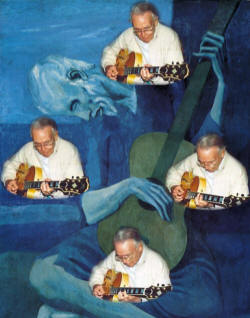
Johnny Smith Meets the Old Masters
John Potis in the House
In part by stripping away the dirty little veil of snobbery and entitlement which holds that if it costs more then it has to sound better and besides you peasants can't afford it so why even bother to approach the altar. We also shared a healthy disdain for truculent, embittered chat room wannabees—think working up a gear review is so easy, think you can do better, no problem home slice, go out and write some reviews of your own. Nor could John tolerate those half-assed reviewers who couldn't be bothered to do the legwork to get it right and to communicate with coherence and clarity to readers. And as a red-blooded, red state kind of dude, John had a particular disdain for those potentates who used their bully audio pulpit to engage in ad hominem bouts of shadow boxing with an endless array of off topic straw dogs. John would often carry his fight to the playpens and sand boxes of Audio Asylum, but more of that anon.
I was frankly startled by the level and frequency of long distance communication I revisited on Xmas day, of the bond between this odd couple, me in Upper Manhattan by the George Washington Bridge, John down in Owings Mill, Maryland, in Baltimore County. Obviously we spoke at length about our passion for music and audio, less often about politics, which was rather a nettlesome area of discourse for us, as John was of a fairly conservative bent, while my own politics were slightly to the left of Marx and Lennon (Groucho and John, not Karl and Vladimir).

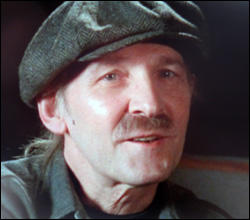
John was always very supportive of my writing. Upon reading a eulogy I'd penned about the great rock journalist and editor Paul Nelson, a major influence on generations of writers at Rolling Stone and a collegiate colleague of Robert Zimmerman (Bob Dylan to you, son), John commented thusly: "Man can you ever write, Chip—the downside of your writing is that you never leave anything unsaid ...there's never anything to add. Keep him alive in your heart."
Well, you can imagine how my heart welled up with pride at such generosity, let alone from a writer whose work I so cherished, but that's the kind of cat Otis was. We kept trying to raise the bar for ourselves, and in the process, for each other.
Often when he would share something with me that was in process, besides giving him some honest creative feedback, I would oblige him by giving his copy a loving line edit and spit polish. "I know you made some changes, Chip, but I'll be damned if I can find most of them—quite a difference from the other so-called editors I've had." Likewise, I often ferried my own in-process works to him. Because as much as my man Otis enthused about my gonzo poetic-emotional approach to articulating my experience of high resolution music reproduction, I thought John cut me seven ways to Sunday, and was second to none in terms of delineating the ins and outs, the wheels within wheels, the way things actually sounded—and could do so with remarkable clarity, style and a sense of the poetic—as I would brag to anyone in the industry who would pause to listen.



Of course, not for nothing did I dub John Potis Iron Chef PhotoShop, and Otis' (as I grew to affectionately call John) poetic bent really came to the fore in his photography. Carrying that talent one step further, John took special delight in artfully manipulating images with a stylish sense of humor (as you can glean from all of the images and collages that accompany this article). Surely his footprints are all over my web site, where he functioned as a set designer and cinematographer; I learned a great deal from him. It was fun, something we could share creatively, and he did a prodigious amount of work, taking any goofy idea I had and running with it. I was always forwarding bizarre requests for juxtapositions of images—I have particularly warm feelings about the process by which we came up with my business cards and inserted photo images into several of my wife Mary's original mandalas.
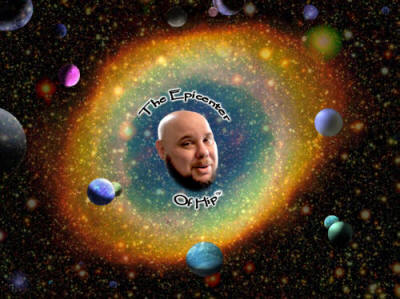
John was a constant source of creative feedback, and wouldn't accept a dime, though I would shower him with CDs and once sent him a couple of nice phono cartridges, with a note to enjoy and to spend the money he saved on something for Rebecca, as if I had to tell him twice. More tellingly, over time John evolved a profound vision of how much more alluring and personal audio photography could be, much as he raised the bar for audio writing. Just take a look at the body of work he left behind if you think I'm jiving.

Chip Stern’s Tributaries
[Mandala by Mary Morgan Stern, Photos by Chip Stern, Collage by John
Potis]
Because in my estimation, John was the best audio writer out there, and the blood equity he invested in explicating all sorts of subtle details and nuances was humbling to me. Especially when contrasted with the opinionated, uninformed, downright lazy prep work and sloppy thinking that marks too much audio writing. He felt a responsibility to communicate something other than received wisdom and petty prejudices—he wanted to leave the readers with a sense of how these musical instruments actually sounded, and to give each piece of gear a fair hearing.

He often commented favorably on the originality of my prose (aw, shucks); about how certain metaphors or turns of phrases made him chuckle, let alone my passion for and knowledge of music, and how having slugged it out through some 10,000 words (chuckle) I'd left no stone unturned and conveyed everything there was to care about in my descriptions.
Be that as it may, I frankly thought that John cut me ten ways to Sunday in terms of how much deeper he probed into the heart of things, into the analytic process, and did so in a more concise, focused, straightforward form. And prodigious, hell, I might complete one or two evaluations in the time John knocked off a dozen. And John was a damn fine writer to boot, nor did I tell him that just to blow smoke up his ass, but because he worked so hard on his writing, always striving for more clarity. John felt an obligation to the reader, not unlike a fine chef, letting the ingredients speak for themselves, allowing the natural flavors to shine through, adding just enough spice and artifice to make things come alive in the reader's imagination.

Because John was not only prodigiously prolific, but impassioned, not just in his prose, but in the challenges he set for himself as a high end audio commentator and routinely exceeded in terms of his research and preparation; his degree of dedication to detail and critical listening—and his rigorous sense of fairness. Nor was he impressed by snooty hype and bloated price points, with a native distrust for audiophile entitlement, and a passion for genuine audio value, which was reflected in how he comported himself with manufacturers—neither obsequious nor self-entitled—always a gentleman.
He was an old school cat in that sense: he gave respect and he would routinely go that extra mile for friends and colleagues and total strangers, but he demanded respect in return, and that was a line you just did not cross, something that the Editor (Srajan Ebaen or SE as I will refer to him) over at 6moons seriously misjudged in April of 2008 when he chose to make a mountain out of an Audio Asylum Critics Corner molehill, issuing papal bulls from on high, banning all contributors from participating, and holding up wayward child Potis as Exhibit A.



Now I'd been expelled from paradise in July of 2007, so I was long gone from 6moons by the time all of this silliness went down, and John had already quit in disgust by the time he sent me an email, puzzled as to why he hadn't gotten a rise out of me. I guess I'd missed his email, and when I inquired as to what the big news was, and he told me he'd quit 6moons, I simply plotzed—you what?
As John filled me in on the progression of exchanges with the 6moons' pooh-bah, he made it clear how startled he was at how quickly SE precipitated a confrontation and forced his hand, leaving him no choice but to exit, stage right.
John explained how he'd been scolded in front of all the other 6moons contributors, as SE personalized his edict against participating in Audio Asylum chat rooms by sending out an email "lesson" to all contributors. Otis felt patronized and publicly humiliated. John further related how, having thus fired off both barrels into his feet, SE proceeded to lock and load, further upping the ante by choosing to play his my way-or-the highway trump card, much to John's chagrin.
"All of a sudden he's telling me that maybe I need to consider whether or not I can continue to contribute given how I feel. I didn't appreciate being given edicts about what and where I could participate, but you know what Chip, I couldn't believe how quickly he chose to suggest that maybe I needed to think about leaving—it made me realize how little my production was valued. I mean, if he had simply called me up or sent me an email in private, rather than playing this out in front of the entire group, you know, something like 'John, I'm a little uncomfortable with your participation in these Audio Asylum chat rooms, and I'd appreciate if we didn't get involved in these negative public debates,' I probably would've said, no big deal. But do you know that in all the time I wrote for 6moons I never received a single phone call from him saying nice job, good piece or even how's the family? I mean, loyalty is a two-way street. Now he's telling me that I should take a week to think things over. I told him that I don't need a week. I'll clean off my desk and be on my way. Then he suggested that I address the group to explain my decision. I mean, are you kidding me? I've never seen anyone leaving a place asked to address the employees."
I found this all most odd, especially considering the prodigious body of work John created for this high end audio Tom Sawyer (who'd convinced all the neighborhood kids to pay him for the pleasure of whitewashing his fence). Surely John derived professional accommodations and perks for all this work. But if John had written seventy full-length reviews—complete with an array of beautiful photo images—for TAS or Stereophile, well, you do the math. Still, more than the money, it was the heavy handed manner in which SE handled this seemingly insignificant little dust up and precipitated Götterdämmerung that spelled D-I-S-R-E-S-P-E-C-T to my man Otis.
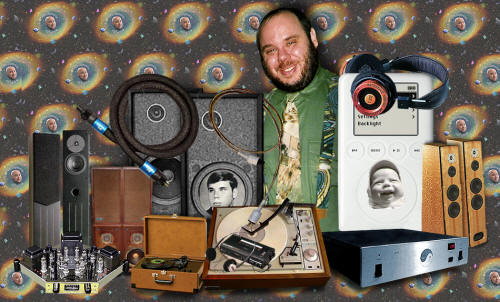
Ghosts of Audio Past
[Collage by John Potis]
Even odder considering how SE and I came to a parting of the ways. Like the Righteous Brothers before him, SE done lost that loving feeling, and felt my output was too long, too little, too late (contributors were required to turn over reviews inside of 90 days), and that of myself I thought too much—pointing to Potis as an example of everything I was not. I was getting a free ride off of his web site's cachet, while contributing nothing. All of this went down prior to his dust-up with John, and John tried to be conciliatory, spinning it as tough love. I thought it naught but the good old fashioned bum's rush, all very high-handed in a Teutonic key. Because it wasn't simply enough to say, it's not working out; it was his sack and burn Carthage-and-salt the ruins-animus which I frankly found more unsettling, as I'd always been a 6moons enthusiast and respected the vast amount of work the publisher had invested in developing his web site's voice, look and content. Finally things descended to the depths of absurdity when SE inflicted a sharp slap on my knuckles for a passing reference to John Atkinson and Michael Fremer as friends and colleagues. This precipitated an email harangue as to my effrontery—how dare I speak of them as if I were their equals. Huh?
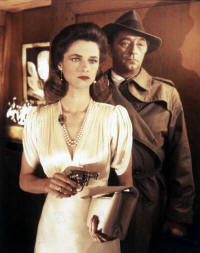
Well, Sammy, a little traveling music: I was reminded of an exchange between the notorious madam Frances Amthor and gumshoe Philip Marlowe in the film Farewell My Lovely.
Frances Amthor: I think you're a very stupid person. You look stupid, you're in a stupid business, and you're on a stupid case.
Philip Marlowe: I get it. I'm stupid.
Why air out all of this agita now? Because SE chose to roll out a presumptuous little mea culpa in the course of his "tribute" to John on 6moons—nothing more than a wan attempt to re-write history and justify his ill-considered exercise in school marm muscle-flexing at John's expense, while promulgating out and out conjecture and misinformation as fact (or as a wise man once said unto a friend of mine, "Son you ain't just wrong, you loud wrong.")
"He then wrote many reviews for us over many years before contributing to Positive Feedback Online as a result of an argument I had with him over some of his postings on Audio Asylum. We were both firm on our positions and John handed in his resignation. In retrospect, he must have already been dealing with his medical condition and was likely even more uncompromising than usual to follow his own light."
[Pause]
I cannot tell you how outraged I was when I read that fatuous twaddle. What a low-powered, single ended my ode, classless A-ho ...and John not even laid to rest.
First of all, John was healthy as a horse when SE laid his April's Fools Decree on him and precipitated their choose it-or-lose it confrontation.
Secondly, John didn't experience any untoward manifestations until well after Labor Day, which SE would've known if he had bothered to put in a phone call and wish him well—it was common knowledge that John was dealing with treatments for a malignancy. Nor did John pass away from cancer: he suffered an aneurysm, and whether or not it was from the strain of his chemotherapy and radiation treatments, or a genetic pre-disposition that blighted his family (I believe his brother suffered the same fate), he is no less deceased.
It would have been simple enough to respect John's memory, and reference his body of work, but no ...choosing the occasion of John's sudden death to put his spin on this dreary episode was unspeakably arrogant and ugly ...let alone the empty supposition that John "must have already been dealing with his medical condition and was likely even more uncompromising than usual to follow his own light." Tell me about the rabbits, George. Obviously John had to be terminally out-of-whack to have parted company with such a nurturing presence. When I read this self-inflated, fallacious nonsense I thought my head was going to explode.
Finally, as if to confirm his utter lack of connection to and empathy for the man, who more than any other 6moons contributor, helped elevate the prestige and readership of his web site, SE posted an image of John at work, with this tasty tidbit of treacle, delivered with infomercial sincerity: "Here is a photo of John doing what he liked best—cooking for the patrons of the country club whose kitchen he ran as the resident chef."
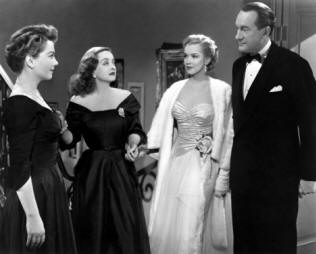
What he liked best? What is this, Lite FM? Somewhere stage left you can make out a disdainful Addison DeWitt biting down hard on his lower lip: "What a dull cliché."



I mean, that's tantamount to suggesting that a laborer pose with his spade. Get thee behind me.
What John liked best? What John and I most enjoyed conversing about were our daughters.


I feel especially blessed that I got to spend some time with John, Rebecca and the kids back in the late autumn of 2004, when I was down in Maryland on business. The warmth and closeness he shared with his family, and the manner in which John related to his girls remains part of me, an experience I will always cherish. Having been a collegiate wrestler, John was especially proud of his girls' athletic achievements: Daniele plays lacrosse and is nationally ranked—tops in her age group—in a number of competitive swimming events, while Gracie's made strides in a parallel direction, playing both lacrosse and soccer, filling John with delight by how quickly she took to golf.
I must say that I admired how John and Rebecca raised their daughters, encouraging them to enjoy being kids, yet guiding their growth in a disciplined, purposeful way. I am as proud of Daniele—her achievements and the type of young lady she is growing up to be—as if she were my own daughter ...Gracie, too, dear thing, whom I have had the pleasure of conversing with on the phone a few times, especially during her brief assignation with the guitar.
I don't know either of them well enough to make any sweeping generalization, save through my brief visit and the impressions John conveyed over time, but Daniele seems perhaps a little more quietly centered, while the younger Gracie struck me as being a little more willful, funny and rambunctious. Like my own daughter as a baby, who could never see a camera lens without going all show-time, I've always loved the photos from their Grand Canyon vacation, where photog John took Gracie and Daniele by surprise—and how quickly Gracie went ka-ching ...lights, cameras, action...great kids, who blossomed like abundant fruit tress in the nurturing glow of their parents' loving attention.



Which might explain why a week after his passing, when I called family friend Jen Harrison to ask after the girls and Rebecca, I found myself losing it and getting all emotional. To regain my composure, I passed along a funny story John related about Gracie and Daniele over the summer. They were horsing around, wrestling on the couch, when it suddenly dawned on Otis that Daniele was kicking his butt. Now Dani is all of 12, so you've got to figure there are significant growth spurts to come, yet according to her daddy, Daniele was already 5' 7" and 140 pounds. So here's this ex-collegiate wrestler, and his 12 year old daughter is giving him all he can handle; as John put it, he realized that he had to "Go adult," to put Dani down for the count. "Chip, she's all muscle," he chuckled in pride and awe. "Like a big fish." I subsequently extended this same analogy to my adult daughter, who'd developed impressive muscle tone and vitality through regular workouts. "You know Daddy," she deadpanned, "has anyone ever told you that your compliments suck?"
My own father passed away on November 17, 1967, a few weeks shy of his 43rd birthday, when my brother and I were 15 and 12 respectively, so for John to transit on the morning of Monday, December 22, at the doorstep of winter, barely two months since celebrating his 49th birthday and a few days short of Christmas, leaving behind a wife with 12 and 8-year old daughters ...well...
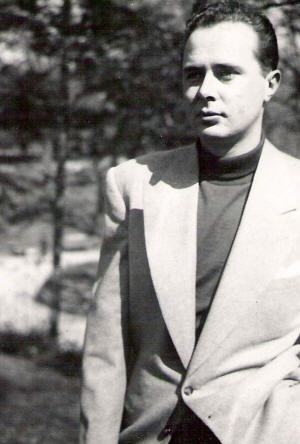
Martin Stern
Chip Stern’s Father
My own father began feeling funky around Labor Day Weekend in 1967, and went in for a check-up, which is when they found lung and lymph cancer, which had metastasized to the point where despite chemo and radiation therapy he lapsed into a coma and swooped the sphere like a shot off of a shovel eight weeks later.
Now you've got to understand that John was feeling just fine all through the spring and summer, as confirmed by our mutual friend Daniel Barnum, who visited the Potis family during that stretch with his daughter Julia, and who like me, just can't wrap his mind around the finality of it all. Nor did John drink or smoke or otherwise use his body as a particle collider. John took note of a lump below his jaw as the summer of 2008 drew to a close. By October 3 he penned a hopeful email: "Maybe it's just the optimist in me but I'm not overly worried. I was swollen and sore all week until Friday morning when, almost miraculously, I took my last prednisone and noticed that the swelling had all but disappeared and the soreness was pretty much gone. I also noticed that the shape of the mass had changed. Not sure if anything dangerous would shape-shift."
Latter he copied me on a note he'd emailed to Positive Feedback's editorial tandem of Dave Clark and David Robinson: "I scheduled surgery to have it removed on the 23rd of this month. At that point they'll send it to pathology and see if it's cancer. If it is, then they're going to really disrupt my schedule for the next few months. They'll remove all the lymph nodes on the left side of my neck and my tonsils and they'll schedule me for seven weeks of radiation and chemo. The really strange part is that I was told to expect certain kinds of nerve damage having to do with my shoulder. I didn't catch the details completely but my shoulder may not work correctly for a while and I'll be running a real risk of tearing a rotator cuff if I try to pick up something heavy.
"Now this is all worst-case and I could get sent home that day because what they found was not cancer at all. I had my third biopsy (the first two were inconclusive) today and judging by the look of the sample the doctor is encouraged that it's not cancer. Nevertheless, he's preparing for the worst.
"The point of this is that I won't be accepting any review shipments until the end of this month at the very least and who knows what after that—if it is cancer, the doctor reckons that it's 80 to 90 percent curable. As I say, it's just going to disrupt things for a while... so don't take me off the masthead yet!"

You've got to love a cat with that kind of positive traction, but as things turned out, it was a malignancy. Still, during this period, I like to think back upon John's experiences with the Rogue Audio Metis Pre-Amp and Atlas Stereo Power Amp, and how he shared his growing enthusiasm for this high performance/high value combo with me. The level of his prose and insights were very moving to me. Moving to me? This is fucking audio ...still, in thoroughly depicting this $1495 power amp's attributes and trade-offs, one passage from an early draft sums up our shared attitudes, and embodies those qualities I found so compelling about John Potis as an audio critic and as a cat.
There's more to like about the Atlas but this is why, like the Metis, if it's required to serve the music, the Atlas does it. If the Atlas doesn't do it, it's unessential to the whole musical purpose. Moving beyond what the Atlas produces is more about providing the audiophile bells and whistles than getting closer to the music. The Atlas Presents so strong a case for itself that moving beyond its attributes seems a clear case of gilding the lily. Simply put: this thing just reminds me of live music. Most of what it doesn't do are things you won't get from live music, either.
You should follow the above link back into the Positive Feedback archives and re-read the entire piece. John poured his whole being into it.
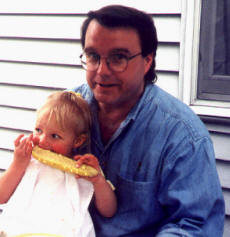

Well, John remained positive, and we communicated regularly even as he was hooked up to drainage tubes: he had a hard time even getting down water or ice cream without extreme discomfort. Of course John still had enough starch in his sails to engage me in a pretty heated political exchange following the elections, much of which centered around John's dismay with the media, and we went back and forth pretty intensely, things getting testy enough that I finally backed off, paused a day or so, until we both shrugged, laughed and went back to our neutral corners. It took him the better part of a month to recover, more or less, from surgery, and began chemo and radiation around Thanksgiving—which left him in a stupor for days on end, robbed him of his sense of taste and left him feeling almost ...I don't know, embarrassed at feeling so drained. Go with the flow man, it ain't on you, your body is screaming for sleep. On December 1 he wrote to say, "Believe me when I tell you that I feel your presence and I know you're watching and it is most certainly appreciated. Thank you."
I tried not to bother John too much on the phone, save when he indicated he was up for some chin music. Then on December 12 he shared a long, funny, affectionate email he'd received from reader Jason C. Scott, which was generous in its praise and very affecting... we were reassured that at least one reader got it.
A quote of yours the Chip-Ster included in his [Rogue] M150 piece let me know, without-a-doubt, that you're my boy JP. "I refuse to buy into the whole mystique designed to suck in the suckers who need to feel that they're more sophisticated than the average audiophile." Fuck Yes! What a profound statement! Not only are you addressing the trust-fund 'suckers' who look-down on the rest of us without a six-figure front-end. But you're also addressing the way in which the old-guard in hi-fi have done their best to exclude this hobby from the masses using this bull-shit 'mystique'. Or to at least scare-away the scores of souls that may have discovered just what a powerful spiritual/transcendent-thing hi-fi can be. So a simple Thank-You is in order. Thank You.
We talked briefly on the phone a couple of times thereafter, but there was a stretch during the week ending Saturday the 20th of December (around the time of those big winter storms) when the oddest confluence of events occurred. My left wrist, messed up since an old high school football injury, began to go south on me for the first time in around 16 years, to the point where by Sunday the 21st I journeyed down to Chinatown to see if the acupuncturist could afford me some relief. And as the work week progressed, every time I tried to check in with Otis, I got a dead line. No dial tone, no error messages, no please hang up and dial again...nada. My mind began to race, and I sent an email, just checking in man, to make sure all is cool. But when I came back from the acupuncturist on Sunday evening, and was still getting a dead line, I grew concerned enough to place an operator assisted call; this time I got the answering machine, and Daniele's perky message, when John picked up the phone sounding weary. "I'm sorry, man, did I wake you?" I asked. "No, I was just lying down ...I strained some muscles moving some stuff."

He couldn't believe how much food friends and neighbors had brought over. I recalled sitting shivah for my father and how the lady from next door brought by an aircraft carrier-sized Pyrex dish exploding with baked ziti and meatballs the size of bocce balls. John's energy perked up considerably as we chatted, and he mentioned how they'd received some very fancy chocolates, "Which I'm going to put aside for myself on top of a shelf for sometime in the future when I'm more at mood. I suppose Gracie and Daniele can make due with Hershey Bars," he joked, which I took as a light hearted cue to ease him off the phone. "Look buddy, we'll talk again after your next round of chemo and radiation. You just get some rest. You're always in my heart."
As I began to put down the receiver, towards the back of the soundstage I could make out John saying, "I love you, man." Click.

The next afternoon I woke up and my wrist was throbbing like crazy, I couldn't make a fist, had no strength in between my thumb and forefinger, and because my health coverage is with Mutual of Kevorkian, I knew there was an expensive doctor's visit, X-rays and a cortisone shot in my future.
I turned on the computer and checked my email, and hey, John had responded to my "Checking In" email.
Only it was from family friend Jen Harrison, writing to me at Becca's behest, to tell me that John had passed away at eight that morning. Do you believe in ghosts?
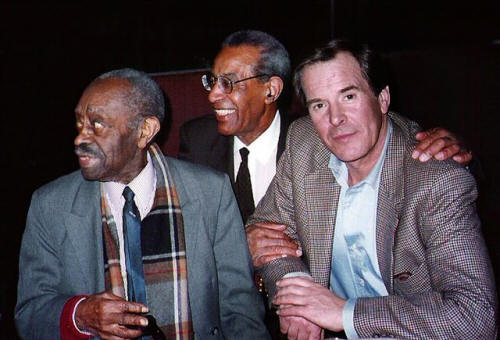
Wilson Driver, Max Roach and Peter Jennings
Do You Believe In Ghosts?
[Photo by Chip Stern, PhotoShop Processing by John Potis]
I spoke briefly to Jen that afternoon, and was utterly spooked for the rest of the day, goofy from pain-killers, casting about to find a doctor who could see me before the Christmas holidays. It occurred to me that shortly after my friend Max Roach passed away in August of 2007, I came down with a nasty case of shingles in my throat and pallet, which was like a sneak preview of death—I mean, like John, I couldn't even swallow water.
I've been talking to John all this past week, but sometimes I can't make out his replies for the static. Dave and David asked me to put down my thoughts, but the idea of writing a piece vexed me. I knew it was going to take on a life of its own, and I knew I couldn't just jump into the deep waters without letting all my memories and emotions slosh around inside the barrel and take on the amber of the oak. I finally put away the prayer rug, because no matter what I did, it would ultimately prove insufficient to the task, by my lights anyway, and would probably run on for my customary ten thousand words. Hold the onions.
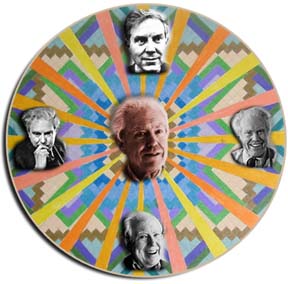
Elliot Carter
100 Years Old, And Still Going Strong
[Mandala by Mary Morgan Stern, Collage by John Potis]
How do you sum up a life? How do you say goodbye and let go? I recalled Papa Jo Jones' memorial service at Saint Peters back in 1985, more of a Friar's Roast than a wake, where I first met his mentor Wilson Driver, who became a dear, dear friend, as did his daughter, the great poet Sonia Sanchez (born Wilsonia Driver). I thought back to November of 2000 when Max Roach and I took a cab up to Harlem to attend Mister Driver's wake. He'd passed a few months shy of his 97th birthday, and we both spoke over him in a packed church. I remember how utterly inadequate I thought my words to be, but there was Sonia beaming back up at me from the front pew, and when I returned to my seat next to Max in the back of the church, Percy Sutton (a major figure in the Harlem community, who'd been Borough President of Manhattan and owned a piece of WBLS) smiled and gave me a high five. Maybe I did do some honor to my friend.
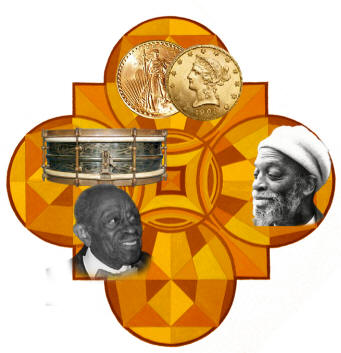
Mister Driver and Papa Jo
[Mandala by Mary Morgan Stern, Collage by John Potis]
Then I remembered something Max said at a wake for drummer Freddie Waits, who'd also passed away at the age of 49: "The way we defeat death is through acceptance." As I consumed codeine and the odd psychotropic, coming down from the cortisone shots, I listened to my stereo, and began to formulate the notion of a musical recital to remind me of Otis, even as I began the writing process; a programmatic loop; a radio memorial as it were—a compilation disc just under the 80 minute limit. It was time for Radio Free Chip to begin its broadcast day.
I experimented with all manner of music, and in time arrived at a compilation that reflected some of our shared passions, highlighting a number of audiophile quality recordings, including a few tracks I'd referenced in the past whenever I needed some consoling sounds. I constructed this aural collage, much as Potis assembled his pictorial collages, to help to speed up the healing process and to focus my love and admiration for John Potis, and convey why we should cherish his memory so.
Do you believe in ghosts?

As I began writing, thoughts of John's family would sneak up from the side and ambush me emotionally ...perhaps in discussing the back story behind each track, John's character might peek through. Perhaps.
I shaped the arc of my tone poem from contemplative instrumental airs, to songs of consolation and loss, peaking on a transcendent, darkly affirmative note with the immense unfinished fugue Bach was composing just before he passed away, followed by an Elliot Carter "Elegy" from his Americana period...closing out with a sweetly pensive spiritual from a trio chaired by a musician John had come to really admire, particularly through the Live at the Royal Albert Hall Cream reunion DVD, drummer Ginger Baker. The resolution, soundstaging and dynamic range of my audio system itself was damn near as consoling as the music, and I found myself immersed in waves of color—the sound itself constituting a final embrace, a fanciful "see you on the other side."
RADIO FREE CHIP

Presents

A SONG IS NOT ENOUGH

La Rondinella—A'her Noghenim
Ry Cooder—Paris, Texas
Johnny Smith—Shenandoah
Ralph Towner—Green and Golden
Cowboy Junkies—Blue Moon
Revisited (Song for Elvis)
Stevie Ray Vaughan—Tin
Pan Alley (Roughest Place in Town)
Bill Frisell, Ron Carter, Paul Motian—Pretty
Polly
Erik Friedlander—Dream Song
Dave Holland—Conference
of the Birds
Grateful Dead—Box Of Rain
Emmylou Harris, Neil Young—Sweet Old World
Jeff Beck—Suspension
Glenn Gould—Bach's
Contrapunctus XIV
Elliot Carter—Elegy
Ginger Baker, Charlie
Haden, Bill Frisell—Spiritual
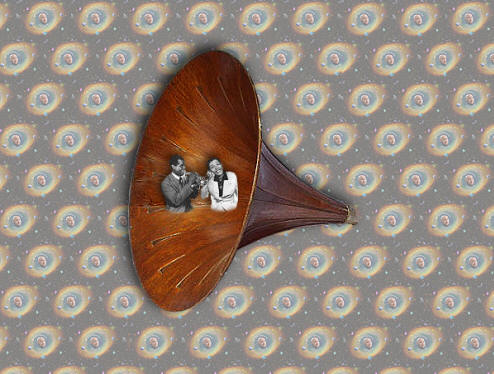
As John's musical Jewru, I turned him on to a lot of music, and I particularly enjoyed making compilations discs for him, each with its own storyline, striving to match-up selections in terms of relative keys and chords, moods, phrases, instrumentation ...I must have tweaked this compilation through four or five iterations, including then removing many worthy selections before arriving at the final arc of my sermon.


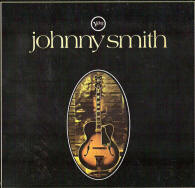
I began with an invocation of sorts (how one might initiate a memorial service): a spare, soulful performance in a very minor key entitled "A'her Noghenim" by La Rondinella, a chamber ensemble specializing in Spanish renaissance music of the Sephardic Jews. On this short selection, with naught for accompaniment but a simple droning pedal point, the crystal purity of Alice Koslozki's unadorned mezzo suggested Hebrew prayers for the dead in a resonant acoustic space.
From there, straightaway into guitar-ville with one of my favorite audiophile tracks, a moody, spectral performance of "Paris, Texas" by Ry Cooder (derived from Blind Willie Johnson's harrowing 1928 performance of "Dark Was the Night, Cold Was the Ground"). Against a tolling backdrop of ambient drones, bell sounds and percussion, Cooder's acoustic slide work evokes nocturnal images of loss and remembrance. The manner in which the cinematic imagery and Cooder's soundtrack serve to reinforce one another, lends enormous power to the movie Paris, Texas and its tale of lost identity and familial reconciliation.
Next up is a brief and very poignant bit of Americana by the great jazz guitarist Johnny Smith, a solo performance of "Shenandoah." Employing a lightly amplified arch top Gibson of his own design (and bearing his name) from a 1967 recital for Verve, the Colorado Springs native shows why despite being retired for over 30 years, his sumptuous tone, supple chording, and classical articulation with a plectrum continue to inspire generation upon generation of guitarists, many of whom were not even born when the master last performed. Smith's poetic performance evokes all of this popular folk standard's most poignant, bucolic elements; the guitarist eschews complex variations, content instead to shadow the familiar melody in hymnal harmonies. Those, long, lonesome country airs really put me in mind of simple folks from the the Dust Bowl, John Ford's The Grapes of Wrath and my man Otis.
[Tangent Alert]
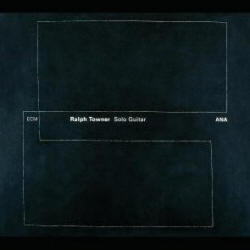
That sense of verdant folkish grace and Americana which imbues "Shenandoah" with such poetic power, is carried forward to greater emotional heights by Ralph Towner on "Green and Golden." Employing classical finger style techniques on a nylon-string classical guitar (and a dreadnought Guild 12-string) in a jazz context, Ralph Towner is unique among jazz players both for his technical skills and his stylistic breadth and depth as a composer. And while Towner's variations on "Green and Golden" evoke a resonant sense of gravitas, he waxes more whimsical than somber in his variations.

Alice and Robert Quine
Green and Golden
I have turned to Towner's performance of "Green and Golden" many times in the past for inspiration and consolation, to particular effect upon hearing of the sudden death of electric guitarist Robert Quine's wife Alice. The suddenness of John's passing put me in mind of Alice Quine, and to the degree that such loss illustrates the fragile, playing with the house's money nature of our tenuous, flickering presence in this sweet old world, it is a parenthetical all-night diner I shall linger in for a spell.
Robert and Alice had lived in a Soho loft for many years, and it was my understanding that a move to a more rural setting was imminent, but those plans came undone one afternoon when Robert came home to find Alice curled up in a fetal position on their bed, dead of a heart attack.
Now Robert and I had grown apart over the years, but he was always very dear to me. I met Robert when I first came to New York through our mutual friend, writer Lester Bangs, whose enthusiasm for Quine knew no bounds. Robert was a pioneer of punk and rock stylings as a member of Richard Hell & The Voidoids and of Lou Reed's The Blue Mask band, and went on to record with the likes of John Zorn as well as a memorable appearance on Hal Wilner's misceganistic masterpiece (a confluence of Charles Mingus-and-Harry Parch), Weird Nightmare—Meditations on Mingus.
But there were other aspects to Robert's playing and aspirations—reflected in his deep affection for the work of Charlie Parker, Bill Evans, Jimmy Raney, James Burton and On The Corner and Pangaea-era Miles Davis. I got to reference this side of Quine back in the early '80s, when I had the pleasure of playing with Robert on several occasions, documenting those sessions on cassette, including one memorable trio encounter in the East Village with my bassist Perkin Barnes, and several sessions thereafter in my home studio, where I was able to set Quine and Bill Frisell on a collision course, with dramatic results.
Well, when I heard of Alice's passing, knowing Robert as I did, I was persuaded that Quine might not be long for this world, and without in any way wishing to deny or minimalize his grief, I tried to suggest that Alice's flame needn't be extinguished in him.
Ultimately my meager draught of consolation and support would prove futile, still, I gave it my best shot, and referenced "Green and Golden" to make a connection:
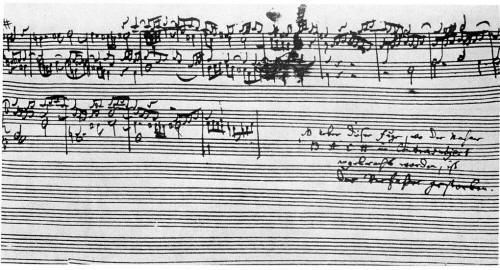
The Art of the Fugue: Contrapunctus XIV [Fuga a 3 Solggetti]
Bach’s Last Will and Testament
"Defeat death? Not hardly. Yet over time, as I've lost others close to me, I've come to suspect that perhaps we may transcend death by carrying on and extending the legacy and spirit of our departed family and friends in ways that are meaningful and real, in simple acts of kindness and sharing …and creativity. Much as we would hope others might treat us. Several years back, coincident to a time of loss and grieving in my own life, I was listening to a Ralph Towner solo guitar recital on ECM called Ana and there was this song called "Green And Golden," a very simple thing, really …deriving in large part from our old friends A Major and D Major. I found myself moved in ways I couldn't quite verbalize …something about the ineffable quality of the music itself, and the connections I made thinking about those colors—green and gold. Later on my wife Mary told me that in American Indian lore those colors have spiritual significance, as they are the symbolic colors of the heart (and the charka in some eastern philosophies).
"These ideas paralleled certain images forming in my own mind, as I thought of great expanses of mountains, verdant and lush with new leaves, as seen from an eagle's perspective, soaring overhead at sunset, the fading light of dusk imbuing everything with this eerie amber glow, like the suggestion of something beyond us yet inside us at the same time. I've always derived an emotional connection (a sense of otherness or spirit if you like) from that amber color dancing through the vast cushions of green, signifying life. "Green and Golden" somehow came together in my mind, and I thought of all the people I've known and cared for; all the people who've touched me and have in turn been touched by me; all those who have passed and are no more. I thought especially of my father, and how his passing affected his adolescent son, just as we were really bonding with each other and becoming less like father and son, and more like …friends. As the music moved through me, the images of those green and golden colors deepened and I thought about what they suggested to me...
Green and golden, prisms of light, hinting at things just out of sight, images of life and renewal, of otherness and nothingness, of promises of the here and now ...and then—and that despite all the darkness and distance between us, that someday we'll be together again…
[Tangent Concluded]
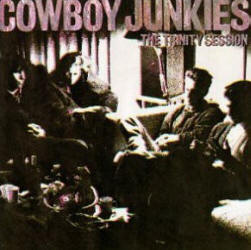
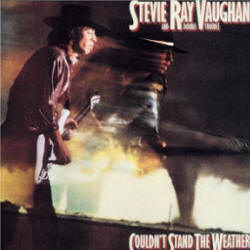
Having set the tone of our recital with solo voice and guitar, we segue into The Cowboy Junkies' "Blue Moon Revisited (Song for Elvis)." Recorded with minimalist simplicity and ambient grace over the course of a single day in the blissful acoustical portals of the Trinity Church, on only their second recording out of the box, the Cowboy Junkies created a neo-traditional masterpiece with The Trinity Session. Their spare, haunting rendition of the Rodgers & Hart chestnut, evokes the Elvis Sun Sessions in an altogether original, more slow-motion take on venerable rockabilly conventions, as vocalist Margo Timmins' husky timbre and cool, tightly wound delivery suggest an immense harvest moon, shrouded in clouds (Astrud Gilberto? Say hello to Miss Patsy Cline), tethered like some luminous indigo balloon against a capacious black soundstage, where now and again guitarist brother Michael Timmins peeks out from the silence to offer some laconic, echoplexed commentary. The Trinity Session's vast expanses of intoxicating ambience, open space and sensual dynamic contrasts make it a desert island stop over for many audiophiles. "...and then one sad day, he went away and he died."
Wherein we segue into the larger than life electric blues elegance and juke joint desperation of Stevie Ray Vaughan's prodigious instrumental work on "Tin Pan Alley (The Roughest Place In Town)." This is yet another audiophile milestone, and it's almost impossible to traverse a high end audio gathering without hearing this recording commanding center stage in one demo or another (alas, my SACD rendition of Couldn't Stand the Weather is now out of print). Now you tell me: has there ever been bigger Fender bass sound or a larger acoustic cave, dirt floor and all (recorded in January of 1984 at New York's premier recording facility, The Power Station...now known as Avatar, with its cathedral-ceilinged Studio A). I believe Vaughan employed a red, maple-neck Stratocaster (rather than his customary SRV-rosewood fret-board model) when he went for a jazzier, more focused tone as he did on "Tin Pan Alley," yet even at more modest volumes, the ambience and dynamic range of his sound fills the room like an orchestra, though the degree to which SRV surfs the silences in this performance is what always give me goose bumps. For both John and me, this was a definitive audiophile dog yummy, and the embodiment of those tonal qualities which have made the Fender Stratocaster such an esteemed, ubiquitous sound signature in American music—and Stevie Ray Vaughan such an iconic figure some nineteen years after his passing.
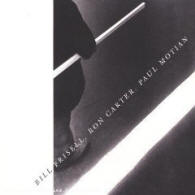
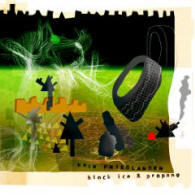
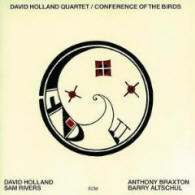
In keeping with the slightly ghostly tone and tenor of the previous selections, and in thinking of Otis, I continued to mine a rich vein of country and Americana, even as we stepped some 25 years into the future, a more modern technological epoch, for a pair of selections that evinced even hotter recording and mastering signatures, despite their ruminative pedigree. Moving from Bill Frisell, Ron Carter and Paul Motian's evocative free form improvisation on the traditional British folk song "Pretty Polly" to cellist Erik Friedlander's juxtaposition of solo cello and tuning forks on "Dream Song" suggested images of the Appalachian, Blue Ridge and Ozark Mountains, even as Friedlander seemed to reference the legacy of Woody Guthrie and western migrations (I thought I could make out echoes of "Across The Wide Missouri" in his variations). This Frisell session has become one of my main reference recordings, an enthusiasm shared by John after I burned him a copy. Beginning in an amorphous, tolling manner (providing a perfect bridge from the reverberant final strands of Stevie Ray's performance) the trio downshifts from flotation mode into an almost diabolical groove, as Motian's double-time brushes propel Carter and Frisell into an airborne, contrapuntal dialog—a very powerful, beautifully recorded performance, thus leading into Friedlander's dulcet cello...with his gorgeous tone and articulation, Friedlander at times seems to be singing a lullaby...the tuning forks, placed both left and right of center, adding angelic overtones to this particular dream. Upon playback of the disc at a set volume level, I was kind of shocked how much louder this solo acoustic cello was recorded and mastered than any other, so much so that if you didn't back off, the tape hiss was pretty apparent. Still, that's why the Lord made volume controls, and Friedlander's conception throughout this recital is adventurous and transcendently beautiful.
The ending of Friedlander's performance dovetails nicely into the gentle folkish airs of Dave Holland's "Conference of the Birds." Recorded with the ambient grace and instrumental clarity that distinguished so many of the early ECM recordings, Holland's richly shaded solo leads to a typically engaging figured bass pattern that dances gently along in an odd meter before cycling back on itself, reinforced by drummer Barry Altschul's cunning use of tuned percussion and a tightly focused Paiste Formula 602 Flat Ride to reinforce the groove while providing understated contrapuntal commentary. The listener's attention is thus allowed to focus on the gorgeous airborne dialog between Anthony Braxton's chanting soprano saxophone and Sam Rivers' muscular flute. This is a modern jazz classic (as defined by the crossover from the avant-garde jazz of the 60s to the bold jazz-rock fusion of the early 70s), yet projects the kind of warmth and lyricism that belies its free form pedigree.
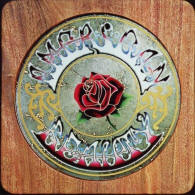
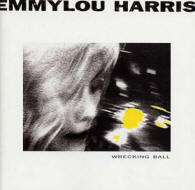
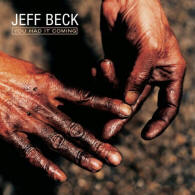
"Conference of the Birds" concludes on a very serene note, with a fairly extended period of silence, a long enough pause between selections to change gears and initiate another cycle within the overall arc, two songs and an instrumental: "Box of Rain" by the Grateful Dead, followed by Emmylou Harris and Neil Young's powerful cover of Lucinda Williams' "Sweet Old World," and finally a moody power-ballad by that most original of electric guitarists, Jeff Beck's "Suspension." "Box of Rain" and "Sweet Old World" are both songs that address loss, the former dealing with the death of bassist Phil Lesh's father, the latter seeking to explicate the suicide of a dear friend. Both have a pronounced country/Americana feeling, the latter in a post-modern milieu, compliments of producer Daniel Lanois, and a testament to Harris' artistic courage, extending upon her traditional country/bluegrass approach with an extraordinarily abstract, impressionistic aural canvas (check out this loud rendition of a soft acoustic ballad, with its sometimes startling low-frequency accents and sonic watercolors shadowing the keening vocal harmonies of Harris and Young). As much as I chose these songs for their instrumental airs, the sentiments expressed by their lyrics are especially consoling. Taking a cue from the manner in which "Sweet Old World" ends, I chose Beck's stunning instrumental with its immense lyric dimension—an otherworldly recollection of fallen heroes in some psychedelic hall of mirrors—for the manner in which it bridged the end of the Harris song, with a sonic flotation and a harmonic suspension that allowed for a more logical transition into the poignantly slow intro to Glenn Gould's monumental performance of Bach's Contrapunctus XIV from The Art Of the Fugue.
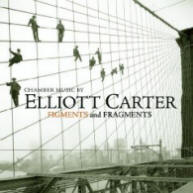
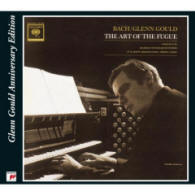
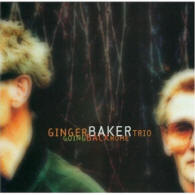
Even so garish a wordsmith as me cannot do justice to this selection, save to observe how life-affirming performances of Bach's music can be, none more so than in this selection by pianist Gould, a master interpreter of Bach if ever there was one, bringing his great intellect and technical gifts to bear on an emotive performance of this immensely ambitious fugue—which was ostensibly the last compositional challenge the great man set for himself, his eyesight and health failing him, when he finally gave up the ghost. Gould allows a stark D hovering over middle C to serve as his nominal ending (think of it as a tape splice edit), and the suspended manner in which a righteous life is thus interrupted, suggesting the need for a piece that began in a modestly ambiguous harmonic mode, and I chose a lovely string quartet from the great American composer Elliot Carter's early Americana period, his stately "Elegy" (from the Hybrid SACD Figments and Fragments on Norwegian producer Morten Lindberg's superb 2L label). Now 100, Carter composed "Elegy" while in his 30s, and it is august and largely tonal in the renegade tradition of Charles Ives and the thoughtful plainspeak of Aaron Copeland, harmonies move liking wheels within wheels, not in the manner of Carter's post-WWII revolution in polytonality and a multiplicity of parallel and contrary rhythms (one might regard it as a cinematic abstraction of democracy). Nor is "Elegy" abstract, but a hymnal, an ensemble in which the quartet remains lightly tethered to the grander scheme of things, not revealing the C Major resolution of the underlying key center until the final amen.
And having thus told my story of John Potis, as the congregation began to exit the sanctuary on the way out into the light of day, I concluded with a performance by one of John's favorite musicians, drummer Ginger Baker and his Trio, featuring guitarist Bill Frisell and bassist Charlie Haden in a performance of the latter's Presbyterian hymn book homily, "Spiritual." Amen.

Millions of us in love
Promises made good
Your own flesh and blood
Looking for some truth,
Dancing with no shoes
The beat, the rhythm, the blues
The pounding of your heart's drum
Together with another one
Didn't you think anyone loved you?
See what you lost when you left this world
This sweet old world
What you lost when you left this world
This sweet old world
Emmylou Harris [Words and Music by Lucinda Williams]
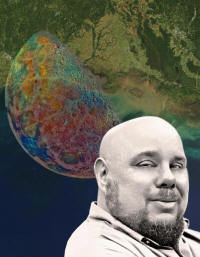
What
do you want me to do, to do for you to see you through?
A box of rain will ease the pain, and love will see you through.
Just a box of rain, wind and water,
Sun and shower, wind and rain,
In and out the window like a moth before a flame.
It's just a box of rain
I don't know who put it there
Believe it if you need it
Or leave it if you dare
But it's just a box of rain
Or a ribbon for your hair
Such a long long time to be gone
And a short time to be there
Grateful Dead [Words by Robert Hunter, Music by Phil Lesh]

Having thus shared all of these recollections and personal impressions, having fleshed out the time-line and incidents which marked John Potis' final body of work and his ultimate rites of passage, it occurs to me that this entire article, as obsessively extended and detailed as it grew to be, has been part and parcel of my own process of grieving and closure. Let alone trying to do honor to my buddy.
And now that you are reading it, I suppose I might acknowledge with some finality that which I have been loath to accept—that it is time to say... goodbye. Well, maybe yes, maybe no. Those of you familiar with the great science-fiction writer Arthur C. Clarke (of 2001 fame) might just draw a deep breath at the following observation from this brilliant man. It most certainly gave me pause...
"Behind every man now alive stand 30 ghosts, for that is the ratio by which the dead outnumber the living."
Me and you...

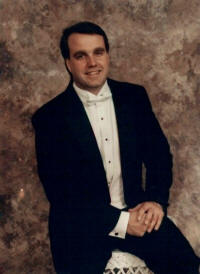

Do you believe in ghosts?


